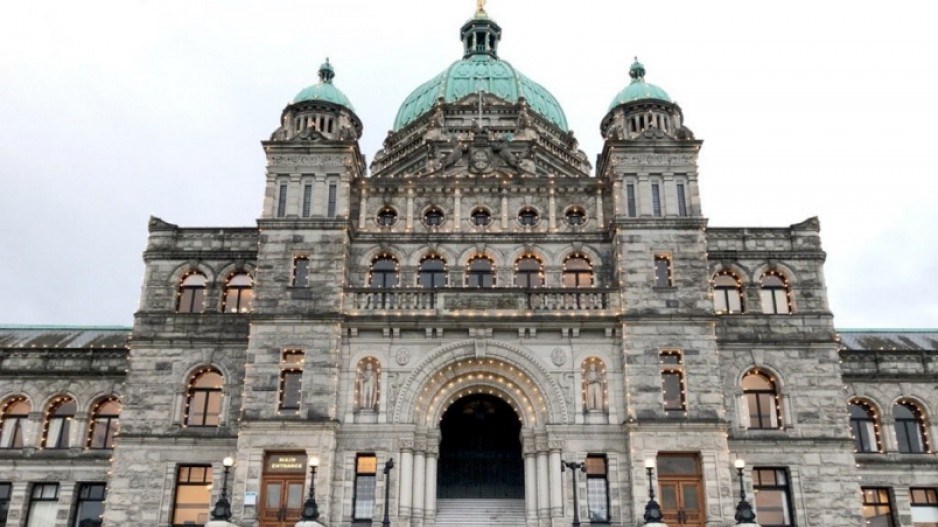The Clerk of the B.C. Legislative Assembly introduced the new executive financial officer to the all-party oversight committee on June 29, but did not say a word about the previous one.
Kate Ryan-Lloyd suddenly met with Hilary Woodward on June 22, before Woodward was escorted from the Parliament Buildings. Ryan-Lloyd refused to comment to a reporter, calling Woodward’s departure a private personnel matter.
The chartered accountant had more than 25 years experience in the B.C. public sector, including work as chief financial officer for the Ministry of Health. Her $209,748 pay in the 2020-2021 fiscal year was second only to Ryan-Lloyd’s $281,112. Woodward was the last witness at the fraud and breach of trust trial of Ryan-Lloyd’s mentor Craig James. Ex-clerk James faces a July 4 sentencing hearing after he was found guilty of spending almost $1,900 of taxpayers’ money on a custom suit and shirts for personal use.
At the Legislative Assembly Management Committee’s first meeting since March 30, Ryan-Lloyd said interim financial officer Randall Smith began June 23. Smith is the retired former chief financial officer of the B.C. Oil and Gas Commission. Ryan-Lloyd said his job includes implementing the assembly’s new, three-year strategic plan passed June 29.
“As members will know, the assembly administration has had challenges with organizational underspending of our approved operating and capital budget in recent years, and Randy will be conducting a current state assessment of our forecasting practices mid cycle allocations, budget development process and ongoing financial reporting,” Ryan-Lloyd said.
The meeting heard the Legislative Assembly finished the last fiscal year $3.7 million below its $86 million budget due to reduced travel during the pandemic, staff vacancies and savings on operational expenses.
Ryan-Lloyd said the strategic plan through 2024-2025 also contemplates what she called a “renewal” of the Legislative Assembly Protective Services (LAPS), the police department for the Parliament Buildings.
“We've already embarked on some initial work to establish [an MLA] safety and security program,” she said. “But we also recognize that much more can be done to strengthen the security environment for members, considering the types of challenges that have arisen over the course of the last year, including the need for additional advice and support to constituency offices.”
The move comes two-and-a-half years after Alan Mullen, who was chief of staff to then-Speaker Darryl Plecas, submitted a report to LAMC that recommended saving $1 million by transforming LAPS into a security department and downgrading the sergeant-at-arms to a ceremonial role, with security and facilities maintenance overseen by others. LAMC commissioned former Vancouver Police Deputy Chief Doug LePard to study Mullen’s recommendations, but that report has not been made public.
The Legislative Assembly is not covered by the Freedom of Information and Protection of Privacy Act. A recent report by an all-party committee struck to review the law once every six years recommended that the law be extended to include the Legislature’s operations.
Just before the meeting went behind closed doors, Ryan-Lloyd said there had been three instances of policy non-compliance during the last quarter of the fiscal year. Two breaches were related to capital project review and approvals and the other related to procurement and contract management. Ryan-Lloyd did not disclose any details of the when, what or who of the violations.




